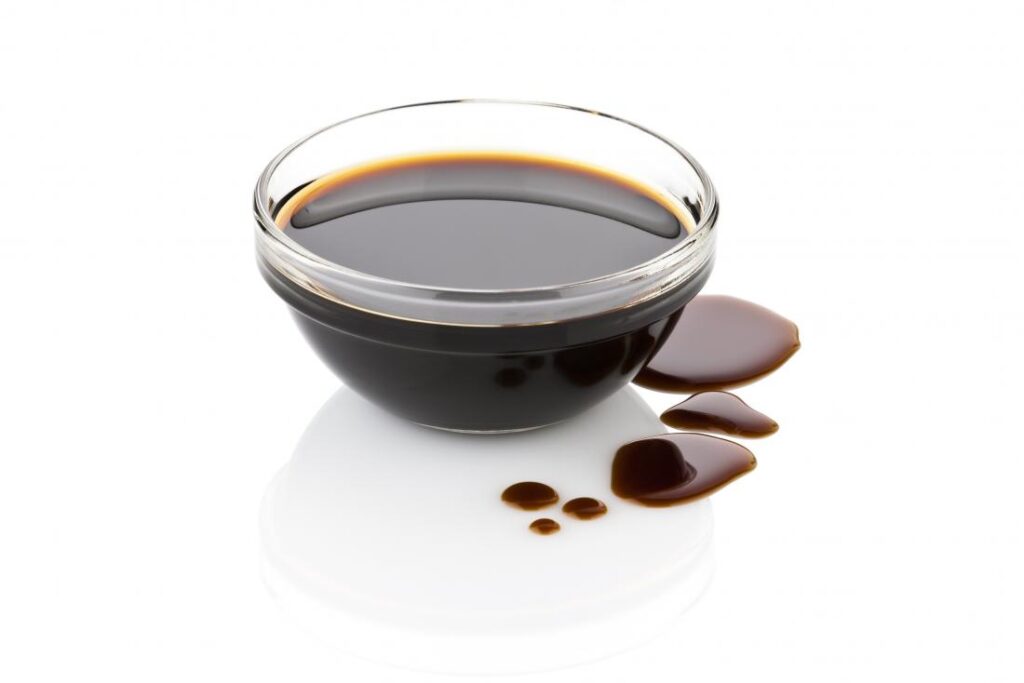Balsamic vinegar, with its rich, tangy flavor and dark, glossy appearance, has been a staple in Mediterranean cuisine for centuries. But beyond its culinary appeal, many people wonder: is balsamic vinegar good for health? The answer is a resounding yes—when consumed in moderation, this natural vinegar offers numerous health benefits, ranging from improved digestion and weight management to heart health and blood sugar regulation.
In this article, we explore the nutritional profile, health benefits, safe usage, potential side effects, and comparisons with other popular vinegars. Whether you are health-conscious, looking to lose weight, pregnant, or managing diabetes, this guide has you covered.
Nutritional Profile of Balsamic Vinegar

Table of Contents
Balsamic vinegar is not just a flavor enhancer; it contains several nutrients and beneficial compounds that contribute to overall well-being.
| Nutrient/Compound | Amount per 1 tbsp (15ml) | Health Benefit |
|---|---|---|
| Calories | 14 | Low-calorie flavoring for weight management |
| Carbohydrates | 2.7g | Provides mild energy source |
| Manganese | 0.1mg | Supports bone health and metabolism |
| Polyphenols | 30–50mg | Powerful antioxidants, reduce inflammation |
| Acetic Acid | ~1–2% | Promotes gut health and blood sugar control |
Compared to other vinegars, balsamic vinegar is rich in antioxidants and polyphenols, which help fight free radicals, reduce oxidative stress, and support overall cellular health.
Health Benefits of Balsamic Vinegar
Supports Digestive Health
One of the most significant benefits of balsamic vinegar is its ability to improve digestion. The acetic acid in balsamic vinegar promotes healthy gut bacteria, aiding in nutrient absorption and supporting a balanced digestive system.
- Helps break down proteins in meals
- Reduces bloating and digestive discomfort
- Is balsamic vinegar good for your gut
Aids Weight Loss
If you are looking to shed a few pounds, balsamic vinegar can be a helpful addition to your diet. Its low-calorie content and ability to increase satiety make it a smart alternative to high-calorie dressings.
Tips for weight loss:
- Mix 1–2 tablespoons in salads or marinades
- Use as a light flavoring for vegetables instead of oil-heavy sauces
- Combine with a balanced diet and regular exercise
How to use balsamic vinegar for weight loss, Is balsamic vinegar good for weight loss
Diabetes-Friendly Properties
Balsamic vinegar can be particularly beneficial for diabetics. Its acetic acid content helps regulate blood sugar levels by improving insulin sensitivity.
- May lower post-meal glucose spikes
- Ideal for individuals managing type 2 diabetes
- Can be used in dressings, sauces, or marinades to reduce sugar intake
Is balsamic vinegar good for diabetics
Heart Health and Antioxidant Effects
The antioxidants in balsamic vinegar, particularly polyphenols, are known to:
- Reduce LDL (bad cholesterol) levels
- Improve HDL (good cholesterol) levels
- Reduce inflammation in arteries, promoting cardiovascular health
When compared with olive oil, many studies suggest that balsamic vinegar has comparable heart-protective effects when incorporated into a balanced diet.
Is balsamic vinegar healthier than olive oil
Pregnancy Benefits
Balsamic vinegar can be safely included in the diets of most pregnant women in moderate amounts. Its benefits include:
- Supporting digestion and preventing constipation
- Providing essential trace minerals like manganese
- Adding flavor to meals without extra sugar or fat
Is balsamic vinegar healthy for pregnancy
Daily Usage and Dosage
Moderation is key when consuming balsamic vinegar to reap its health benefits while avoiding adverse effects.
- Recommended daily amount: 1–2 tablespoons (15–30 ml)
- Use as a salad dressing, marinade, or drizzle over roasted vegetables
- Avoid drinking it undiluted, as the acidity may irritate your teeth and stomach
How much balsamic vinegar per day
Potential Side Effects and Precautions
While balsamic vinegar is generally safe, excessive consumption may lead to some side effects.
General Side Effects
- Tooth enamel erosion if consumed undiluted
- Gastrointestinal discomfort for sensitive individuals
- Interaction with certain medications, including insulin
Balsamic vinegar side effects, Is balsamic vinegar bad for you
Liver Concerns
Although rare, overconsumption of any vinegar, including balsamic, may impact liver health in susceptible individuals. Stick to recommended dosages to minimize risk.
Balsamic vinegar side effects liver
Balsamic Vinegar vs Other Popular Vinegars
Balsamic Vinegar vs Apple Cider Vinegar
- Taste: Balsamic is sweeter, apple cider is tangy
- Antioxidants: Balsamic has higher polyphenol content
- Digestive Benefits: Both aid gut health, but balsamic is milder on the stomach
Which is healthier, balsamic vinegar or apple cider vinegar
Balsamic Vinegar vs Olive Oil
- Both support heart health
- Balsamic is lower in calories, better for weight management
- Olive oil provides healthy fats; use both strategically for a balanced diet
FAQs (People Also Ask)
Q1: How does balsamic vinegar help with weight loss?
A1: Balsamic vinegar is low in calories and increases satiety, helping reduce overall calorie intake. It can be used in salads, marinades, or as a light dressing.
Q2: Can pregnant women safely consume balsamic vinegar?
A2: Yes, in moderation. It provides trace minerals and supports digestion without added sugar or fat. Avoid undiluted consumption to prevent stomach discomfort.
Q3: Is balsamic vinegar good for diabetics?
A3: Yes, its acetic acid content can help regulate blood sugar levels and improve insulin sensitivity.
Q4: Can balsamic vinegar affect liver health?
A4: Overconsumption may impact liver function in rare cases. Stick to 1–2 tablespoons per day to remain safe.
Q5: How much balsamic vinegar should I consume daily?
A5: 1–2 tablespoons (15–30 ml) per day, used in dressings, marinades, or drizzled over foods, is sufficient for health benefits.
Conclusion
Balsamic vinegar is more than just a flavorful addition to your meals—it is a natural health booster. From aiding digestion and supporting weight loss to promoting heart health and managing blood sugar, it offers a wide range of benefits. Pregnant women and diabetics can also safely include it in their diets in moderation.
For best results, use 1–2 tablespoons daily, incorporate it into salads, marinades, and vegetable dishes, and enjoy the natural tangy sweetness without adding extra calories.
For more health tips and guides on natural foods and wellness, visit Health Guiders.




